
I try not to use foul language in this blog, save for the occasional “BS”, but one could argue that is more descriptive than expletive. This is a family friendly endeavor, and we try to keep the tone as classy as possible around here. But I would appreciate it if you would take a moment and say a cussword in your own mind on my behalf.
Thank you.
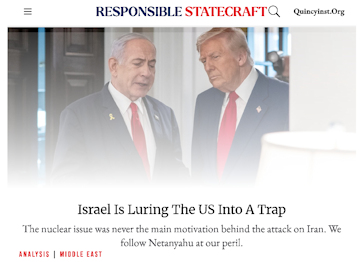
This has been an exercise in frustration. I wasn’t going to write about the Iran “crisis” (query: if you cause the event, is it a crisis?). But I read a couple of articles that more or less described my concerns, and so I tooled-up to address the issue: background research, arguments on both sides of the equation, possible consequences of action and inaction, and so on. I’m not a Middle East expert by any means, so establishing a factual basis for my analysis and opinions seemed a good idea. I drew from a number of different sources, not least of which being one by Paul R. Pillar on the Responsible Statecraft webzine, titled Israel is Luring The US Into A Trap. I recommend it. Mr. Pillar served in Vietnam and is a 28-year-veteran of the CIA. He’s knows what he’s talking about. And he is sounding the alarm.
Then I went to bed, and Trump bombed Iran. Please insert another expletive here.

So, I rewrote this to bring it up-to-date, recorded the podcast, but wasn’t happy with the audio so I re-recorded it. This took most of a day. Finally satisfied, I got up from my desk and checked the news only to find the situation had changed again and a cease-fire was on the table.
Another expletive here please.
This is why I steer clear of events that are developing. But I’m going to go ahead with a majority of what I wrote, because I think it is still relevant: even if the bombs stop falling, there is the question of why they were used in the first place and how misguided our close association with Israel actually is.
Originally, I was going to write about why the United States bombing Iran would be a bad idea, but that ship sailed while I was sleeping and I thought it was back to square one. However, the morning of the bombings, my son, who is one of the new breed of conservative 20-somethings, informed me of the event and was all a-giggles, thinking it was a wonderful idea. And it was refreshing to see someone of his generation exhibiting some pride in our country and its armed forces.
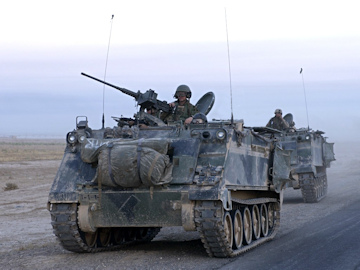
But, he also knows that I am former military and that it is possible to honor the warrior and not agree with the war, so I tried to explain to him how it was a bad move for several reasons, and it occurs to me that it might still be a good idea to articulate why this country’s bombing of another sovereign nation on behalf of Israel was, and is, a mistake. You may or may not agree with me and events may overtake my narrative, but hopefully you will find the arguments informative and potentially of use as more Trump fan-boys in the media come out of the woodwork and don figurative kippahs.

Again, I’m no expert on Middle East geopolitics for the simple reason that I don’t care about that part of the world: my ancestors didn’t come from there. I have no intention of going there. And I firmly believe we can get enough oil domestically or from other sources in sufficient quantities to keep my car running. In a word, everyone east of Europe can go pound sand as far as I am concerned. I’m not a fan of Iran of course—I’m still a little peeved about that whole hostage thing from 1979, and I regard radical Islam with the same contempt I feel for dog droppings left in the park. As for Israel… well, a perusal of this blog, the podcast, or the work I do for the American Nazi Party will likely give you some idea.
But, even not being a Middle East wonk, I know that bombing Iran under false pretenses to further Israeli interests is a bad idea. “Don’t tell me you are okay with Iran having the bomb” my son says. What bomb? This is a straw-man argument on par with Iraq’s WMDs. Don’t believe me? Look at the national intelligence estimates of Iranian nuclear capability just prior to our bombing, the International Atomic Energy Agency’s reports, or Israel’s targets inside Iran, which go far beyond anything associated with Iran’s nuclear program. So far, targets have included:
- Some nuclear related facilities, all used for civilian energy production or research according to the IAEA and our own National Intelligence;
- Energy infrastructure and oil production facilities;
- Military leaders in targeted attacks, including the chief of staff of the armed forces, the commander of the Islamic Revolutionary Guard Corp and his deputy, the head of the IRGC’s emergency command headquarters;
- Military targets not associated with WMDs, including a missile airbase;
- Industrial targets and civilian infrastructure, for example: Tajrish Square in Tehran where Israel bombed a water pipeline. They have also targeted the ministries of oil and justice, as well as several residential areas: Tajrish, Narmak, Nirou Havaei, and Vali Asr Square;
- The state TV station
Notice anything?
This looks an awful lot like how Israel bombed Gaza. If Iran was next door to Israel, you would swear they were laying the groundwork for an invasion, which I assume is not the case given the logistical difficulties. But it does speak to the their true motives: destabilization, distraction, and expansion.
Israel is trying to weaken military opposition against them by going after Iran, and adding civilian casualties to the mix in the hope of destabilizing the government. This, in turn, gives them a freer hand to do as they please in Gaza, the West Bank, and the Middle East as a whole.
It has nothing to do with nuclear weapons.

Interestingly, after both Israel’s attacks and our bombing, no radioactivity was detected. If these sites were critical to Iran’s alleged attempts to enrich uranium, surely there would be some degree of radioactivity resulting from bombing them. And yet, the IAEA reports that “The facilities targeted today either contained no nuclear material or small quantities of natural or low-enriched uranium, meaning any radioactive contamination is limited to the buildings that were damaged or destroyed.”

How do you spell “war crimes?”
So if stopping Iran from getting the bomb is actually just a smoke-screen, what is the point? Israel benefits in several ways by taking action against Iran, and roping us into the conflict, not least of which being that it undermines any potential U.S. diplomacy with Iran. Now it’s a black-and-white diplomatic scenario centered on rallying around the Star-of-David flag. It also distracts attention from Gaza. Some of the most egregious killing of starving Gazan residents seeking food and aid has occurred since the start of the Israeli offensive against Iran. But you wouldn’t know that from watching our news, which is all about the bombing.
Furthermore, Trump’s ego is not to be underestimated. His public statements about Israel’s war have evolved quickly from apparent detachment to enthusiastic support, extending even to use of the first person “we” when claiming air superiority over Iran. Trump evidently is experiencing FOMO (fear of missing out) and seeks to claim credit for ending the alleged Iranian nuclear threat. For purposes of satiating his ego, it doesn’t matter if there actually was a nuclear threat, so long as the perception is there and the narrative is consistent. Just ask George Bush. Weapons of Mass Deception anyone? But gosh, standing on a flight deck with the words “Mission Accomplished” in the background sure looked cool.
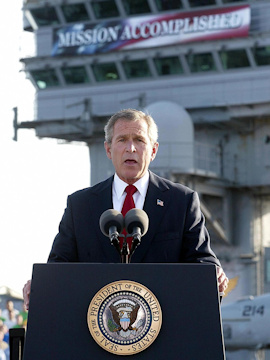

One of the better arguments I read about why attacking alleged nuclear targets in Iran is, or was, a bad idea is that it could possibly make an Iranian nuclear weapon more likely, not less. The prewar judgment of U.S. intelligence was that Iran was not building a nuclear weapon. Iran was willingly negotiating with the United States, with serious intent, to reach a new agreement that would preclude such a weapon.
Tulsi Gabbard made it clear in her testimony to Congress earlier this year that Iran was not developing a nuclear weapon. According to the National Intelligence Director, Iran’s supreme leader had not reauthorized the country’s dormant nuclear weapons program. Trump’s response? “I don’t care what she said,” Trump told reporters
By signing the Joint Comprehensive Plan of Action in 2015, and adhering to its terms until after Trump reneged on the agreement three years later, Iran demonstrated not only that a war is unnecessary but that a prohibition on all uranium enrichment is also unnecessary. The JCPOA closed all possible paths to an Iranian nuclear weapon through carefully negotiated restrictions and enhanced international monitoring. It is impossible to reconcile this diplomatic record with any notion that Iran has been determined to acquire a nuke no matter what. If they were, they would not have signed and complied with the JCPOA. Ipso facto.
Damaging nuclear facilities, even the Fordow complex with huge bombs, sets back the Iranian nuclear program but does not kill it. Nor does it eliminate Iran’s ability to construct a nuclear weapon if it chose to do so. Centrifuge cascades can be reconstructed, and the relevant specialized knowledge in Iran is not limited to the scientists Israel has assassinated over the past week.
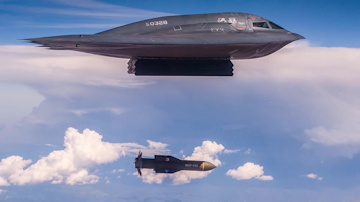
Iranian intentions are at least as important as Iranian capabilities: after all, a threat is usually defined as consisting of intention combined with capability. Iran may or may not have had the capability to make a nuclear weapon, but clearly the intent was lacking. Therefore, there was no urgent threat.
But now, Israel and the United States may have just changed that equation: no event is more likely to lead Iranian policymakers to make the decision they had so far avoided — to build a nuclear weapon — than an armed attack on their country’s sovereign territory. In other words, Israel may have just given them the intent, and the United States joining the war only increases their sense of urgency. And here’s the key: a reconstituted and restructured Iranian nuclear program, with specific military purpose, will now take place outside the view of international inspectors. The world’s prior ability to track the Iranian nuclear program, however imperfect, has just been bombed out the window. In addition, US involvement essentially negates our ability to engage Iran in any kind of constructive diplomacy going forward. It’s war or nothing now. A cease fire is not a peace agreement, or honest reconciliation.
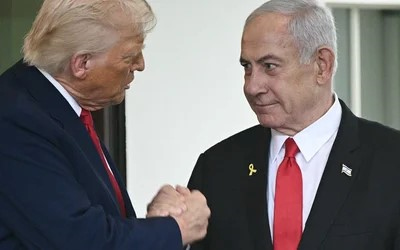
And it’s the kind of war Americans deplore, but increasingly find themselves in: Endless. Trump may believe he can do a “one-and-done”, such as dropping bunker-busters on Fordow and then declaring mission accomplished, but this is unlikely to be the end of U.S. involvement with military action against Iran. The probable Iranian dispersion of nuclear facilities and materials, possibly following an Iranian decision to build a bomb clandestinely, will mean a prolonged search-and-destroy mission. And with Trump being Netanyahu’s waterboy and people like Lindsey Graham salivating at the chance to see American munitions used to increase defense-contractor profits, the US will have to be front and center.

Of course, knowing the nuclear threat is actually bogus and using that as the pretext for military action will only last so long. The phrase “regime change” is being tossed around like bread to the masses as well. This helps explain bombing non-nuclear program related targets. Washington and Tel Avi (for simplicity’s sake, we’ll pretend they are separate for now) are banking on the fact that their citizens have no memory beyond what the media tells them. Whole books have been written on how poor the US track record is at facilitating regime change effectively, but for our purposes, we need look no further back than the last war in Iraq and the overthrow of Saddam Hussein, which resulted in an eight-year quagmire that caused thousands of American casualties and spawned a terrorist group that would take over large swaths of Syria as well as Iraq.

Another example is Libya, where U.S. backing of the overthrow of Muammar Gaddafi — who earlier had willingly, through negotiation, surrendered all his unconventional weapons programs as well as ending involvement in international terrorism — resulted in disorder that spread instability to the surrounding region and left Libya without a single stable government, a situation that continues to this day.
Then, of course, there is Iran itself: the U.S.-supported coup in 1953 put Shah Pahlavi in power. The shah’s rule ultimately proved to be weak as well as harsh, although American oil companies made a lot of money, and lead to the 1979 revolution that brought to power the Islamic Republic that governs Iran today.
In short, we’re great at breaking things, but completely inept and miserable at putting them back together again. Another obvious example for us National Socialists is WWII. One could argue (easily) that the US war against Germany was an example of regime change. Let’s ask eastern Europe how that turned out.
The prospects for the current war in Iran, with or without U.S. involvement, to precipitate a favorable regime change are dim. The Israeli assault has generated the usual rally-around-the-flag effect. Opposition voices inside Iran are distinguishing between the Iranian nation and the regime, with solidarity on behalf of the former taking immediate priority over discontent with the latter.
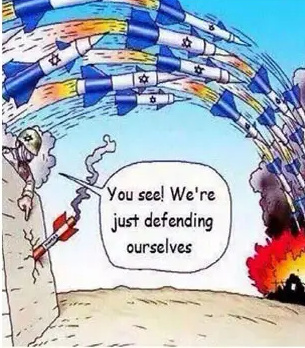
If any significant political change were to occur in response to the war, it would be at least as likely to strengthen regime hardliners as in the opposite direction. Another possibility is something akin to a military dictatorship, led by Revolutionary Guard officers displeased with what they perceive to be excessive softness by the current regime and perhaps in favor of the development of a nuclear deterrent.
The Israeli government probably would be satisfied with a Libya-type situation of chaos and weakness, as their bombing of non-nuclear targets seems to suggest. One of the last things the Netanyahu government wants to see emerge in Iran is a stable, moderate democracy that enjoys good relations with the United States. Such a development would overturn a centerpiece of Israeli foreign policy — Iran as a bogeyman to which Israel constantly draws the world’s attention, away from what Israel itself is doing, and which it can blame for the all the ills in the Middle East.

US involvement will likely have other, more tangible consequences: now more than ever, Americans will be targets. In addition to thousands of US military personnel stationed in the Middle East, including Israel and Qatar and all well within range of Iranian missiles, as I write this, my two daughters are overseas, one in Europe, the other in the Mediterranean, and my wife is flying back from Qatar, where her flight had a layover in Doha as they rerouted around Iranian airspace. Thanks Trump. (Insert expletive here) [Editors note: her flight was one of the last ones out of Doha before they closed the airspace on Monday morning and intercepted Iranian missiles heading to the US base located nearby. A little too close for comfort, but she made it home safe and sound].
US involvement will also further destabilize an already muddled mess. To the extent Israel’s war is aimed at the ability of Iran to construct a nuclear weapon, the Israeli goal is not to keep nuclear weapons out of the Middle East but rather to maintain Israel’s own regional nuclear monopoly.
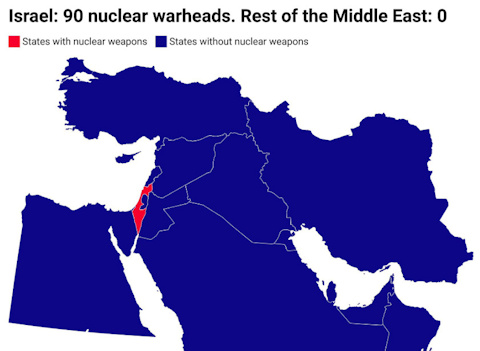
That monopoly is part of the background to the impunity with which Israel has become the most destructive actor in the Middle East, attacking more nations with its armed forces than any other state in the region. Anyone serious about lasting “peace in the Middle East” needs to seriously consider stopping Israel. Direct U.S. involvement in Israel’s current war against Iran essentially constitutes an endorsement and encouragement of that destabilizing behavior. Israel is increasingly becoming a “rogue state”, and we are helping them.
We will likely see instability increase elsewhere, far away from the Middle East too. Having sacrificed the moral high-ground, we cannot call others to task for acting as we do. We saw this happen once already when Russian President Vladimir Putin pointed to the U.S. invasion of Iraq in brushing off international criticism of his own acts of aggression against Ukraine. If our policy is one of offensive defense, we should not be surprised when others follow our lead.
In addition, the US bombing of Iran has now diminished our ability to negotiate with others on the world stage, as it appears the prior few weeks of “negotiations” were little more than a smoke screen to prepare for our bombing missions.
Lastly, I think helping Israel rampage through the Middle East and bombing targets on their behalf is a fool’s errand on philosophical grounds. One of the core demands of the American Nazi Party is for a strong foreign policy to protect and preserve the long-term interests of the White race. Spending our blood and treasure to prop up a Jewish rogue state is the exact opposite of this, never mind it also being a war that doesn’t need to happen. Policing the world is not our job. We are being led down the primrose path by a 97-pound weakling (Israel) who starts a fight, then calls in the big buddy (us) to finish it for him. One of these days, Israel will reap what it sows. I don’t want to be standing next to them when that time comes.
Amerika Erwache!

Leave a Reply